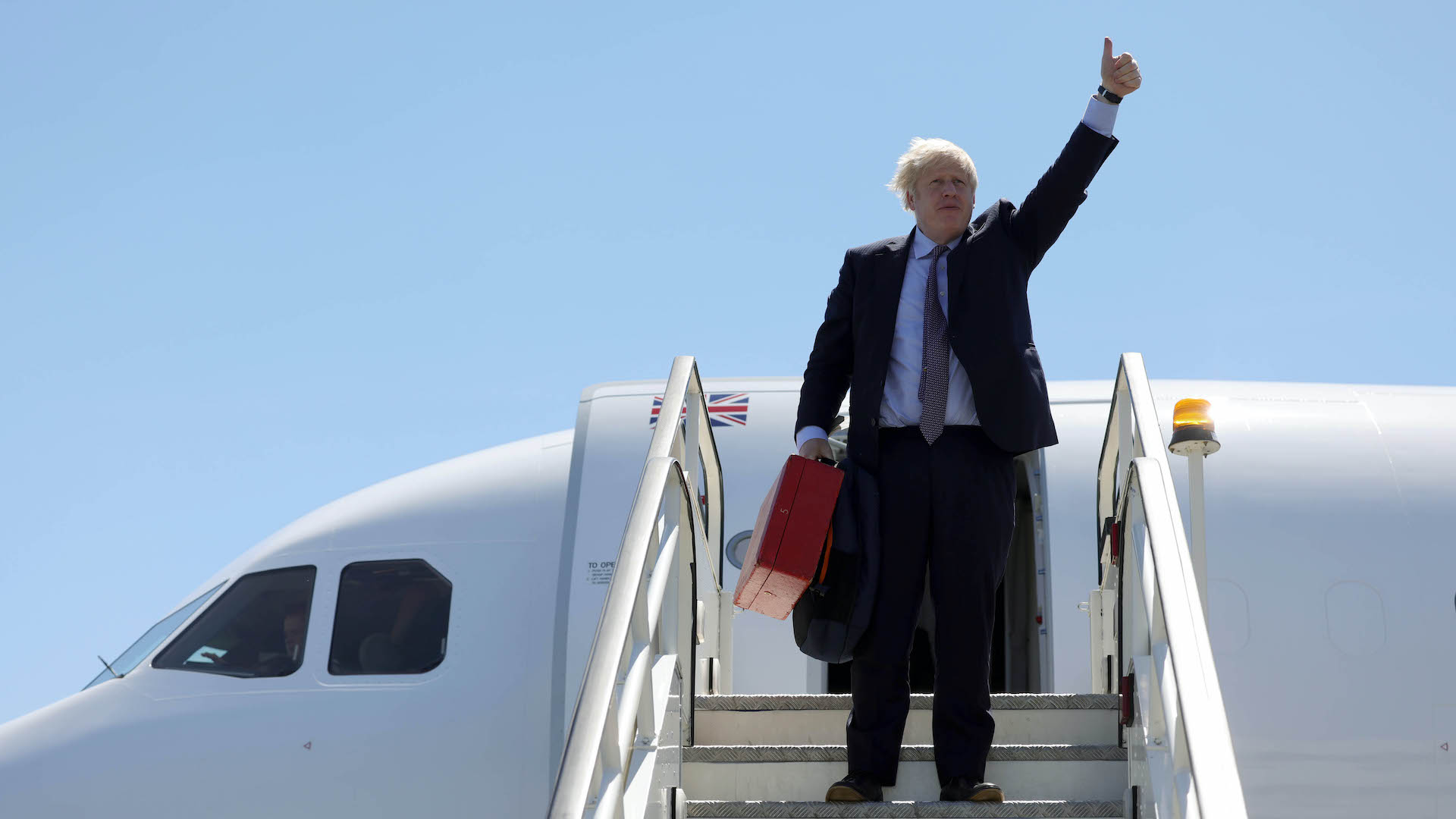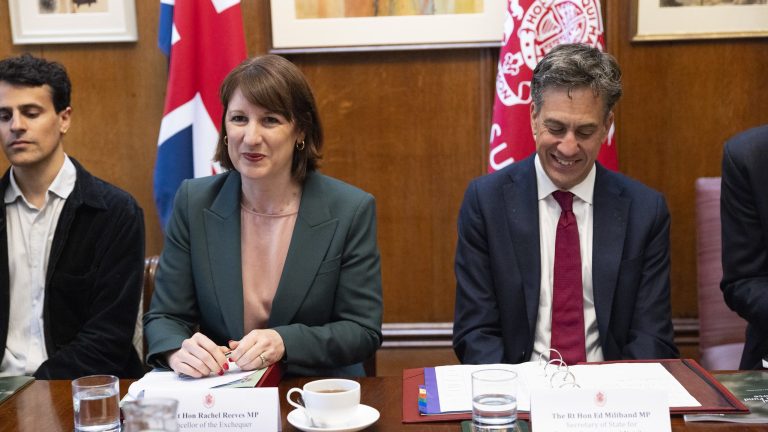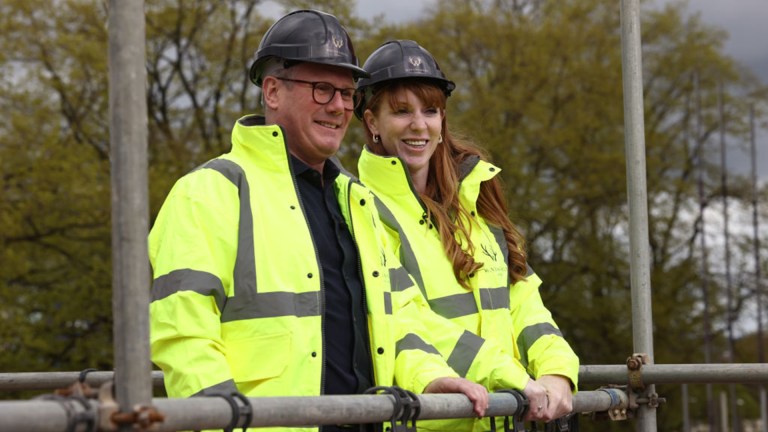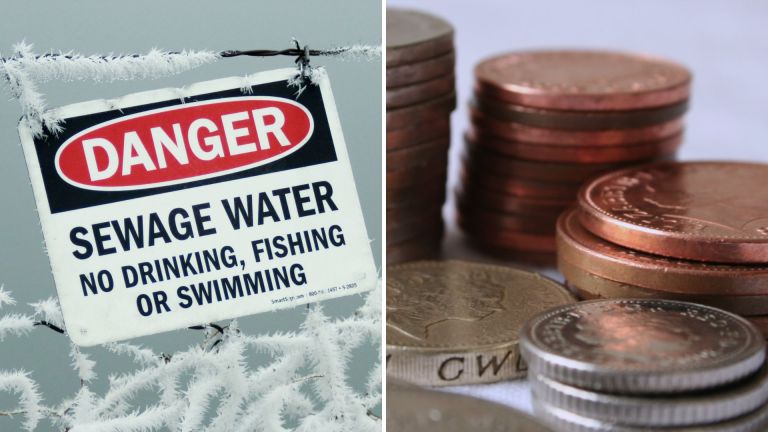The coronavirus lockdown came with an unsurprising drop in emissions, including 60 per cent from the aviation sector, as potential travellers swapped jet-setting for staying at home. But this temporary hiatus in the UK’s emissions will not continue, and is already creeping back up to pre-pandemic levels, according to the authors.
As the CCC launched its reports on adapting to climate change and reducing emissions, they made over 200 policy recommendations. They want all carbon-storing upland peat restored by 2025, an urgent heat and buildings strategy, and for various delayed plans to be delivered, including for aviation.
“The problem is that there is very little action, very little delivery, to show that what we have promised, we are going to achieve. And that, for us, is the crucial issue in this report,” Chair of the Climate Change Committee Lord Deben, John Gummer, said at the report’s launch.
Lord Deben, who was the longest-serving Secretary of State for the Environment under John Major, explained that they had analysed the climate response in every government department.
“The problem is that in almost every area, there have been serious delays. And where there hasn’t been delay, the ambition has not been realised in the action,” he said. “We haven’t hit the mark.”
The policies put forward, he explained, will not reduce the UK’s emission levels enough.
Lord Deben and the other committee members emphasised that net zero commitments need to be thought about across all government decisions.
Climate change is happening, he said, and the UK is not ready.
Overheated homes
One concern in the report is overheated properties, which are causing environmental damage, wasting money, and leading to deaths. This hidden problem is the cause of very real loss of life, as existing conditions are made worse and a sobering reminder of the immediacy of the climate crisis.
And yet a consultation on building regulation changes has only just happened, explained Chair of the Adaptation Committee Baroness Brown. No changes have yet taken place.
“That means we’ve built half a million new homes which are locked into overheating, and will need expensive future retrofit,” she said.
Adaptation to climate change, she said, is so far a story of doing too little, too late and the UK is not keeping up with the rate of future change.
“Across most sectors of our lives and the economy, we’re not prepared for even the 1.5 to 2 degrees of warming that we will get on a net-zero path,” she said. If the UK faces yet more extreme climate change, the situation will be far worse.
An overheated planet
Across 2019, large sections of the UK suffered forest and moorland fires. CCC Head of Adaptation Kathryn Brown said the country is seeing some very concerning trends in the natural environment, with risks to power systems from weather events, and human health at risk from increased heat.
“We know that the hazards from heat, from flooding, from drought, from wildlife, are going to keep increasing,” Brown said.
The extreme summer heat of 2019, she explained, is predicted to be an average summer by 2050. Even in an ambitious global scenario, the costs from climate change will keep increasing.
If current global ambitions continue, global temperatures will increase by 3 degrees, and possibly even 4 degrees, by 2100.
“This is not a world that we want to be in,” Brown said.
Campaigners have been quick to respond to the report. Environmental charity The Soil Association tweeted: “As the UK’s leading charity working across food, farming & forestry, there are a number of areas we think the Government can act quickly and decisively to help them achieve their targets.”
Green MP Caroline Lucas tweeted that the government is in a “deeply dangerous state of denial.”
“Warm words won’t address #ClimateEmergency, we need urgent action,” Lucas said. “PM says he’s shooting for the moon but he’s not left Earth’s orbit & time’s running out.”
The pressure of time was on the CCC chief executive’s mind too, when he said that climate policies cannot wait, and must happen before COP26, the UN Climate Change “Conference of the Parties”, to be held in Glasgow in November.
“You can expect us to continue to hold the government to account,” Stark said.
After a rapid response to a global health pandemic in 2020, the question now is whether the UK government will respond to the climate crisis with urgency.









